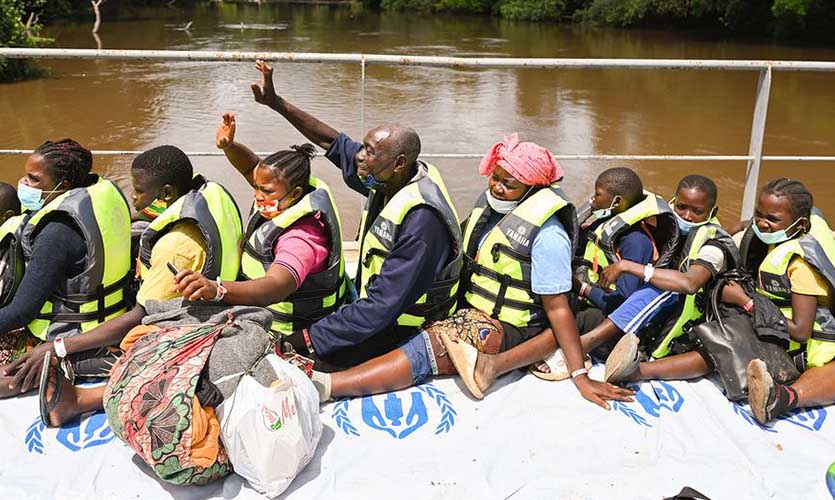Filippo Grandi, the UN High Commissioner for Refugees, is in Côte d’Ivoire this week, to help commemorate World Refugee Day alongside former refugees who have returned home before the formal end to the Ivorian refugee status later this month.
The process of legally terminating the refugee status – the application of cessation clauses – begins on June 30, signalling the end of a period of exile for hundreds of thousands of Ivorian refugees. The end of refugee status followed the peaceful ending of the West African nation’s two decade long intermittent civil strife and governmental turmoil.
The conclusion of a crisis that compelled more than 300,000 people to migrate to neighbouring nations and abroad is a welcome development amid a growing trend of forced displacement worldwide. The UNHCR said last month that the crisis in Ukraine and other concurrent crises have pushed the global number of people forced to leave their homeland due to violence and persecution beyond 100 million for the first time.
Reportedly, the High Commissioner met with former refugee families and wished them well on their return home during a ceremony in Abidjan, organised by the President of the Republic of Côte d’Ivoire, Alassane Ouattara. It was attended by national leaders and diplomats from countries that sponsored Ivorian refugees.
Commenting on the occasion, Grandi said, “For those of us in UNHCR, nothing is better than witnessing the end of exile. After two decades, Ivorian refugees can come home safely and in dignity. They are proud Ivorians – living and working in their communities or neighbouring countries.”
“I was happy to spend Saturday with Ivorian refugees returning home. The return of hundreds of thousands of Ivorians demonstrates to the region – and the world – what is possible when there is political will to end violence and true cooperation among nations,” he added.
In the termination provisions, nations hosting Ivorians have been urged to assist voluntary repatriation, or in the case of those remaining Ivorians, to facilitate local integration, permanent residence, and naturalisation.
Most Ivorians left the nation in two waves, after civil unrest occurred between 2002 and 2007, and again between 2011 and 2012. The government of Liberia has received more than 3,000 refugees from Cote d’Ivoire, who have been relocated to camps further inland from the eastern Liberian transit centres in 2011. Some refugees were moved from the Bishop Ferguson Transit Center to the Little Wlebo refugee camp in Maryland county, while others have been relocated to refugee camps expanded to accommodate them from border communities in Grand Gedeh and Nimba counties.
Read more: UN Agency To Cut Back Food Assistance For 1.7 Million People In South Sudan
Fearing unrest in conjunction with the presidential and parliamentary elections in 2020, tens of thousands of people fled to neighbouring countries once more. Reportedly, over 310,000 Ivorian refugees have returned home, accounting for 96 percent of all those registered in West Africa. Over 11,000 of the 14,000 people who returned this year came from neighbouring Liberia, where the UNHCR organises weekly transportation for Ivorians who wish to return home. Approximately 290,000 Ivorian migrants have moved to neighbouring West African nations since 2011. According to the UNHCR, there are still 800 Ivorian refugees in Togo, who must decide whether to leave or stay after the closing of the Avepozo refugee camp.
While Ivorians returning home could encounter problems and may need ongoing assistance, the government has committed to their reintegration, and local communities have welcomed them back. On June 18, Grandi travelled to the Liberian border to accompany Ivorian refugees on their final ferry crossing over the river separating the two countries. Libyan authorities provided birth certificates to their Ivorian counterparts at the border, and allowed returnees to register their children in schools, receive national identity cards, and register to vote. The High Commissioner promised that the UNHCR will continue to support Côte d’Ivoire and the countries that have hosted Ivorian refugees in implementing the cessation provisions, and in assisting all those who choose to return home.










